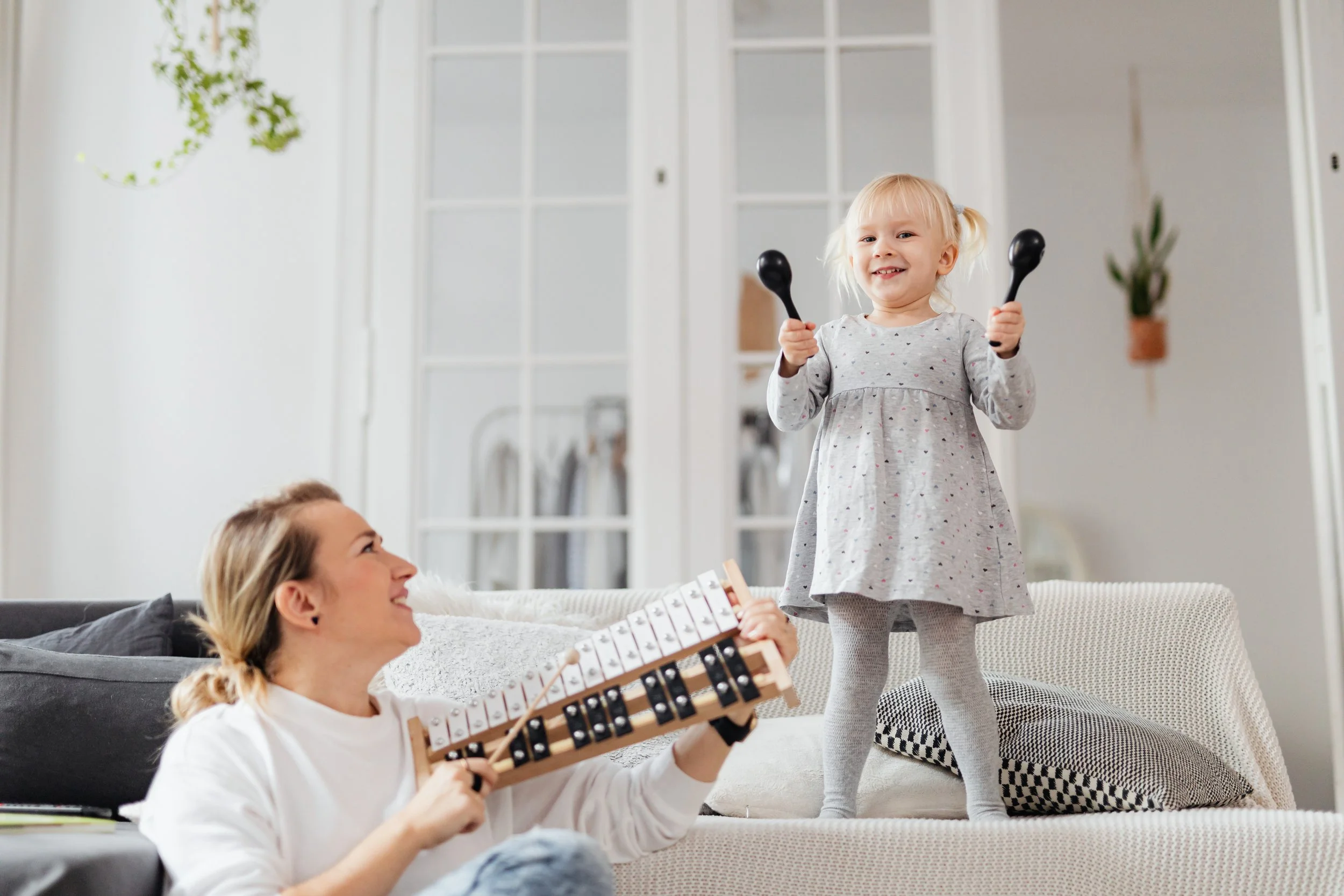Music, Movement, and Social Communication for Kids
by Erica Bland
If you're looking for a fun and engaging way to help your child develop important social and communication skills, consider using music and movement therapies.
According to the American Music Therapy Association, research shows that music can have a positive impact on attention, cognitive functioning, social interactions, auditory processing, speech, expressive language, and literacy skills.
By using music during therapy, you can help your child improve their joint attention, sustained and alternating eye gaze, participation in social interactions, turn taking, flexibility, and awareness of emotional expression.
The Power of Music in Speech Development and Social Communication
Music can help children learn the rhythm and flow of language, as well as improve their ability to understand and use intonation, pitch, and melody in their own speech. These are all important aspects of speech development that can have a significant impact on a child's ability to communicate effectively.
Music can also be a powerful tool for promoting social interaction and building social skills. For example, singing songs together can help children learn to cooperate, take turns, and work together as a group. Playing musical games can also be a great way to promote social interaction, as children learn to communicate with one another, negotiate rules, and solve problems together.
Music can also be used to help children develop their listening and comprehension skills. For example, listening to songs and following along with the lyrics can help children learn to identify and understand new words and concepts. Additionally, musical activities that involve listening and responding to different sounds and rhythms can help children develop their auditory processing skills, which are essential for speech and language development.
How to Incorporate Music During Home Learning
There are many ways you can use music to encourage speech development and social communication behaviors. For example, you can pair a song with an activity or transition to increase flexibility and sequencing skills. You can also emphasize key words in a song to increase awareness of nouns, verbs, adjectives, and adverbs.
Encouraging turn taking is another great way to use music – try playing an instrument and then handing it to your child to play a part of a song and going back and forth adding to the song. Another idea is to play a song and then pause it to practice looking at each other and showing your child a facial expression and seeing if they can guess how you feel.
The Friend Ship: Music to Encourage Social Communiation
I've developed a musical CD, called The Friend Ship, that has nine songs specifically designed to encourage the development of social communication and emotional regulation in young children.
These songs focus on taking turns, using feeling words, self-calming strategies, eye contact, joining in to play, and using words to connect. Using music and movement therapies can be a fun and effective way to help your child develop important skills while also enjoying quality time together.
Overall, music is a versatile and powerful tool that can be used in many different ways to promote speech development and social communication in children. Whether it's singing songs, playing musical games, or engaging in other musical activities, there are countless ways to use music to help children develop important skills while also having fun and enjoying the benefits of music.
Reach out to our team to learn how our clinicians incorporate music, movement, and fun in speech, social communcation, and play therapy for kids!


